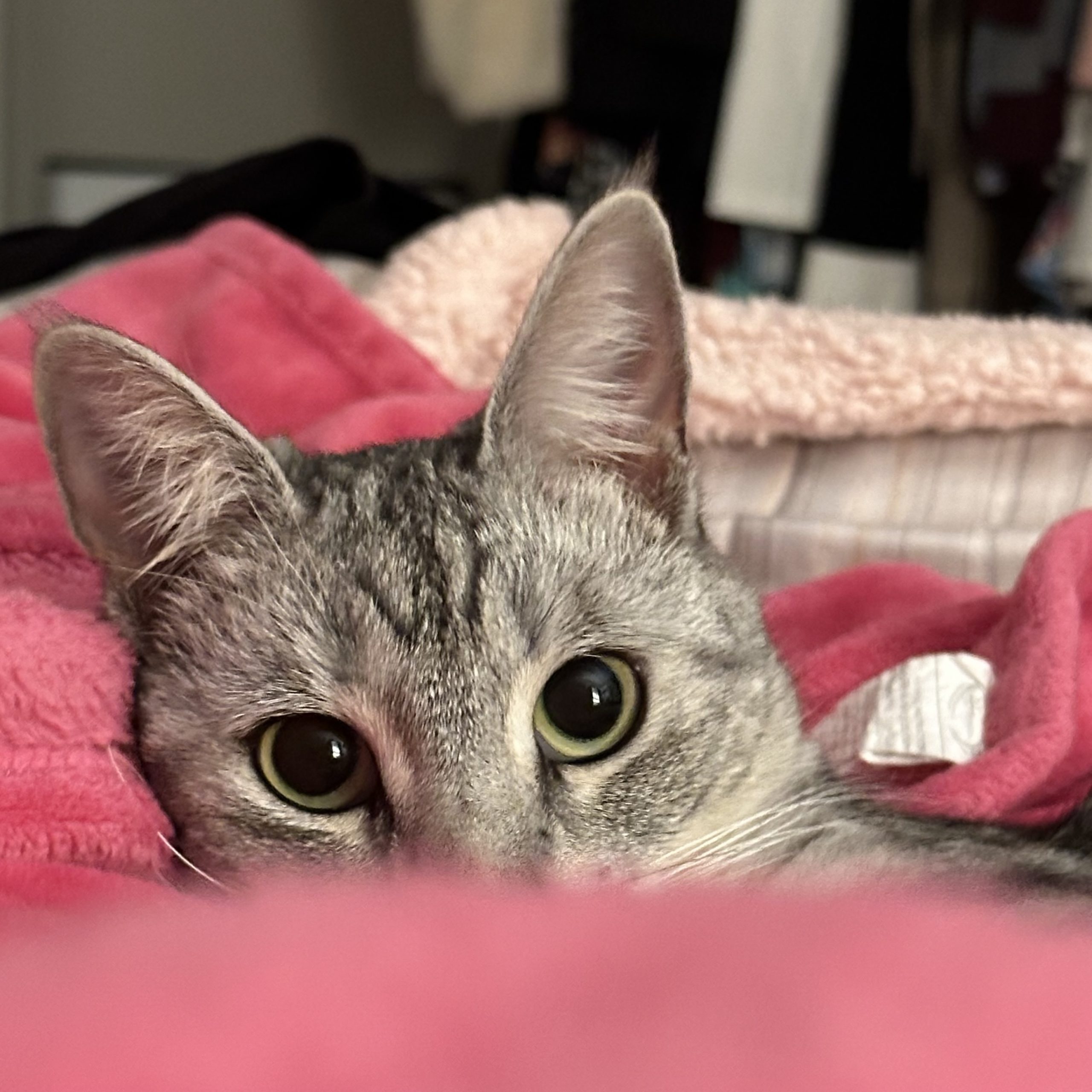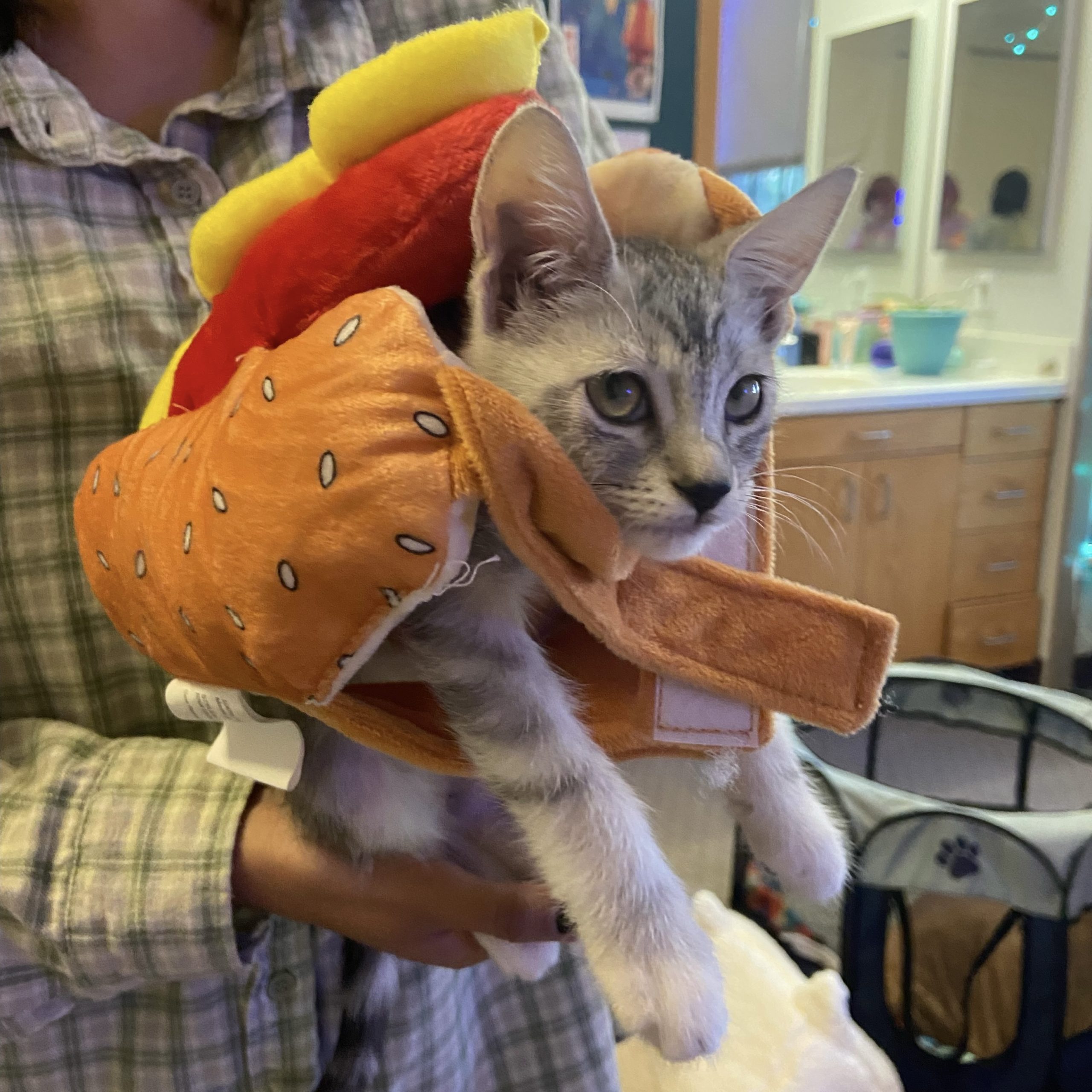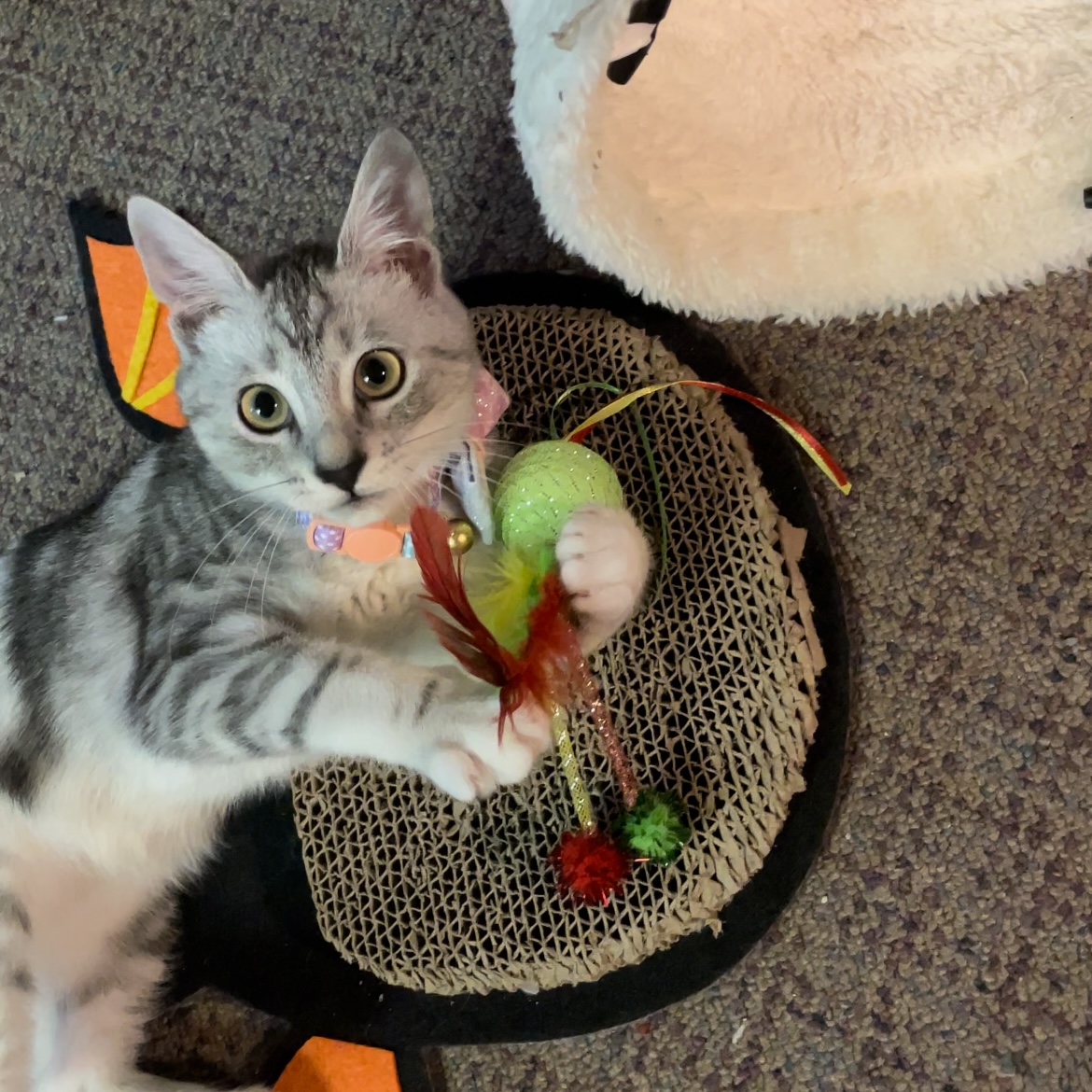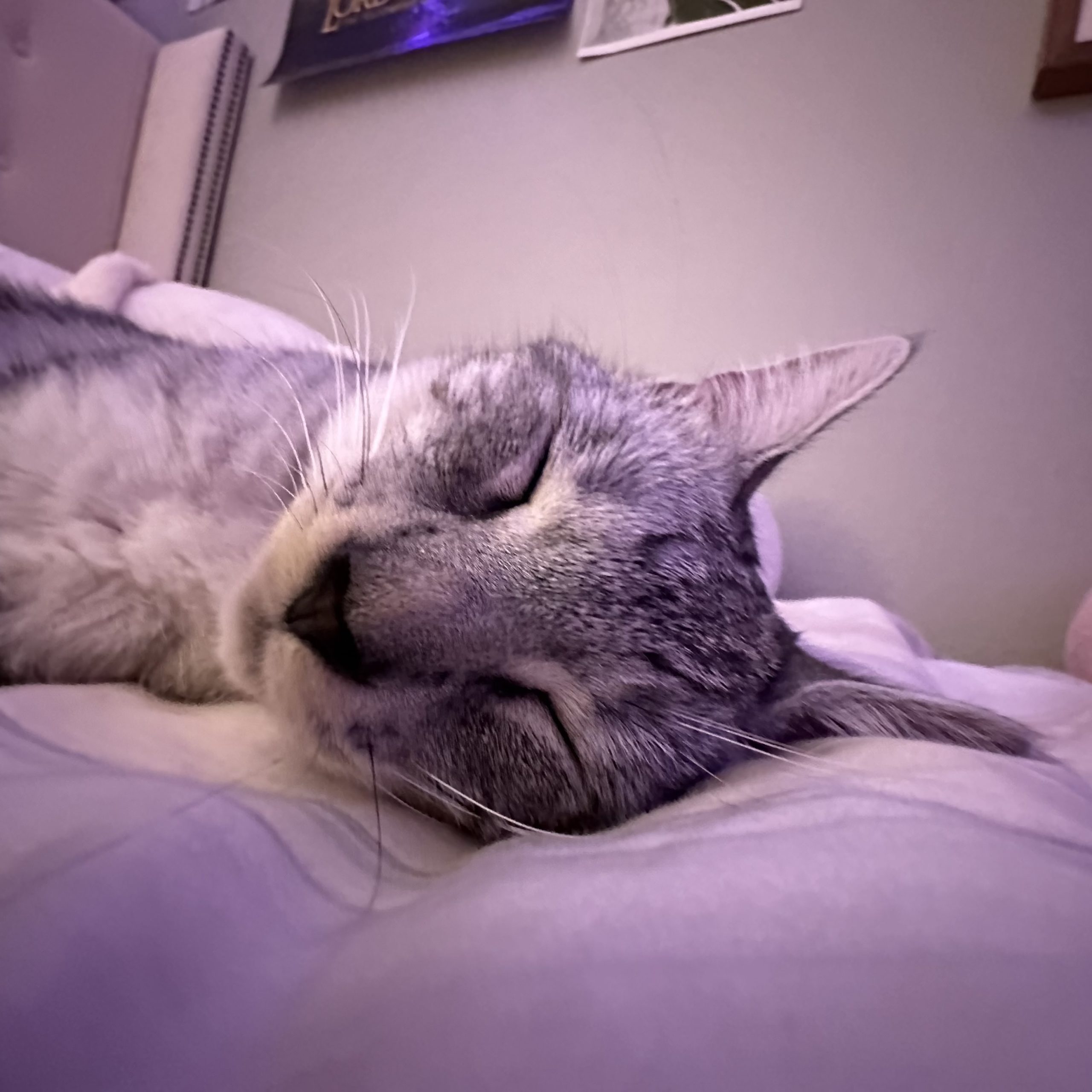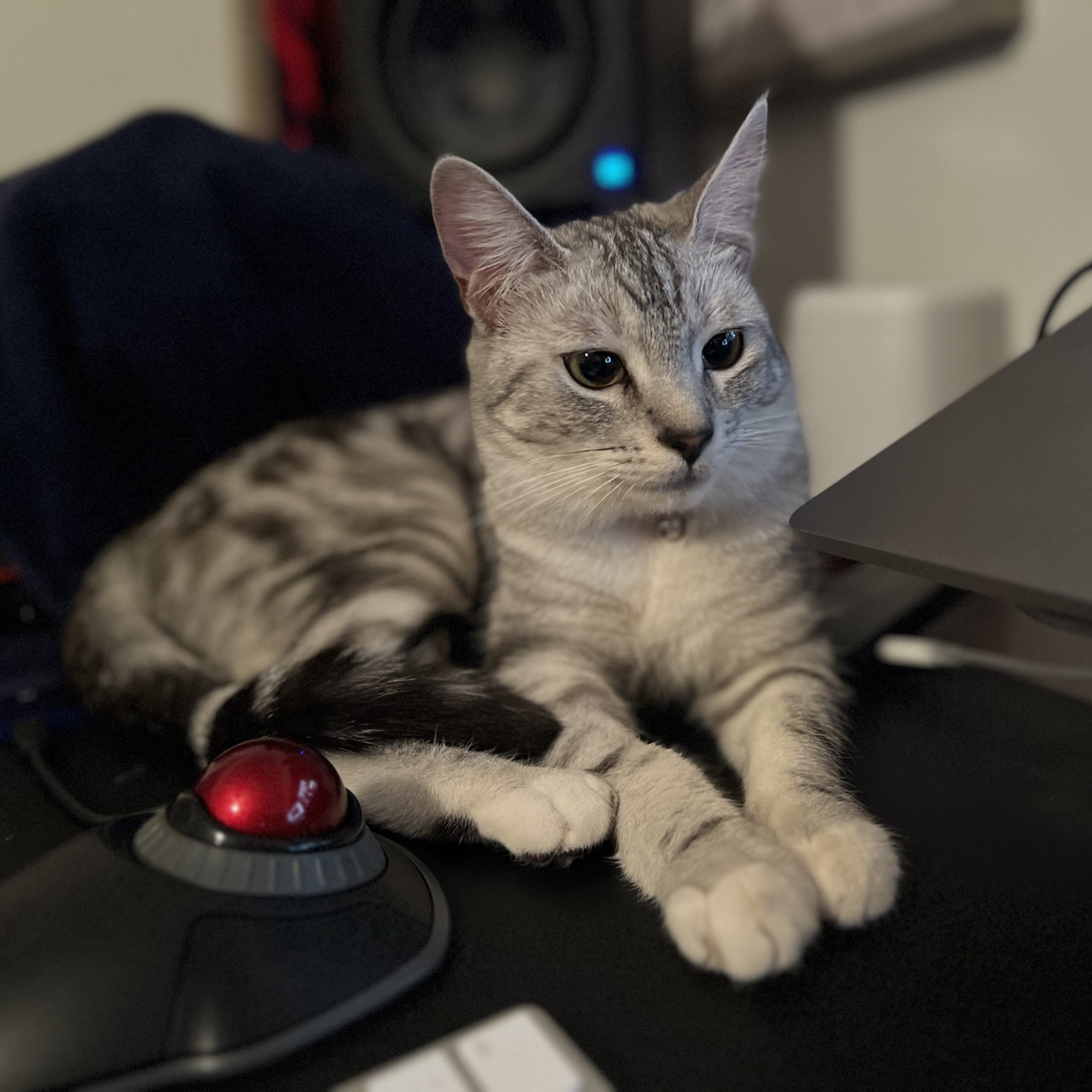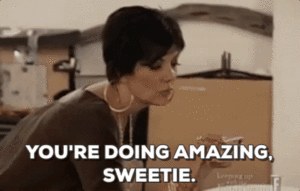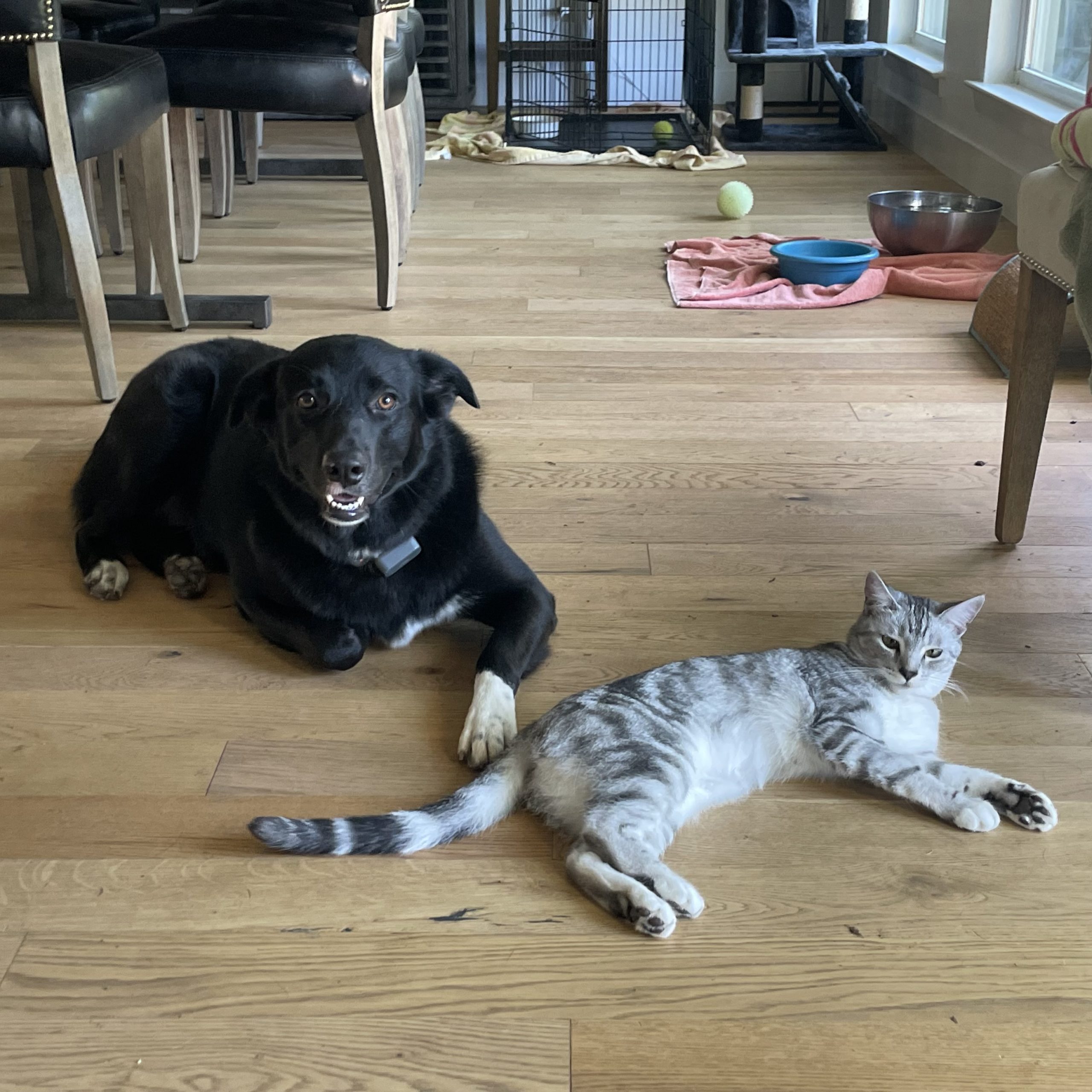By Jane Cooper
Welcome back! This is a continuation of my Essay Analysis blog series. Last time around, we took an in-depth look at my personal college essay. I highlighted the strategies I used, why they worked, and how they could’ve been stronger. My essay won me a cumulative $406,000 in scholarships (💅).
I wanted to put together a list of highlights from that analysis in order to form a general article of things to keep in mind while writing your own personal college essay. This is part one of two, so there’s more tips to come!
And I know that your brain is bursting from information overload at this point – there’s so many stressful variables to encounter while applying to college. For this reason, I chose to break up this article with cute photos of my cat. Her government name is Mrs. Kisses, but you can address her as Her Majesty The Queen Sovereign.
Let’s hit the highlights!
1. You are selling the idea of yourself.
This is the number one thing to keep in mind. Everybody’s a marketing major in their college essay, but the good news is that you’ve got the easiest thing in the world to sell: you!
And of course, we’ve all seen those scammy ads where somebody’s trying to convince you that you can get paid to play mobile games. So when you’re selling yourself, you don’t want to come off as dishonest or otherwise shady. That’s why the other nonnegotiable strategy for your essay is:
2. Tell the truth.
Mom Jane is stepping in for a sec to tell you this: if you go through life honestly, you’ll have nothing to reproach yourself about, even if the worst comes to pass.
For example, when it comes to your college essay, you might feel the urge to stretch the truth and say that you’ve got more experience than you actually have. Because when you’re the product that you’re trying to sell, you’ll naturally want to gas yourself up.
But you must remember that admissions staff sit at their desks and read hundreds of college essays. They know that you’re not superhuman, so if you pretend that’s the case, they’ll know you’re being dishonest.
Now, this is the key: you need to be honest, but don’t overshare. We’ll cover this a bit more in my “anti-pity-party” bullet point (#13 in part 2), but if you waltz in like, “I have no idea what I’m doing, but I really want to join your college!”… that’s a strike against yourself (or an “ick”).
Because you do know what you’re doing, whether you believe that or not. You’ve had 12 years of school to prepare yourself for college. Be confident, and be genuine!
3. Talk to them like people.
I know you’ve written a research essay where you feel like you’re speaking to a robot. “The American Civil War took place in the 6th decade of the 19th century.” (Yes, I had to Google that.)
You’re trying to meet word counts; you’re bored to tears; you hate writing essays. And I know this because even I hate writing essays, even though I’m an English Major who reads a book a week (and obviously writes blogs for a living). The difference is in the passion. I’m passionate about your success, not the Civil War, so let me give you a surefire way into admission: write to a human, because you are.
There is a real person reading this college essay that you’re writing. And they’re not this scary decision-maker who holds your future in your hands, either, even though it feels that way! It’s some caffeine-addicted employee who’s looking at your essay in between twenty others, and you know what they’ll appreciate? Your honesty and consideration.
“PLEASE LET ME INTO YOUR PROGRAM BESTIE I’M SO COOL AND I KNOW YOU’RE SO SMART-” let me stop you right there, because that’s not what I meant. There’s a way to be both professional and thoughtful. All the best bosses are like that: they know how to get stuff done, and they’re also considerate of their employees.
So when you’re writing with the person in the admissions office in mind, you want to be that boss. You’re respectful of your reader’s time while also being firmly confident in yourself and your accomplishments. “This is a good product, and you want this product at your school.”
4. Hook ’em like a fish.
That all being said, it’s time to capture the admission office’s attention. And you can’t do that with the ole “When I was in first grade, I decided to become a doctor.” Be bold! Slap them in the face! (Metaphorically, of course…) Take the best line in your essay, and stick it right at the top.
And because this is a personal essay, I can’t give you an exact formula for a compelling opening, because that’ll be specific to you. Your hook sets up the rest of your essay, so it has to be relevant and encompassing. By that, I mean that you can’t just say: “I murdered three people. Just kidding! Here are five reasons why I want to study birds in college.”
Let’s go back to the first line of my own essay as an example. Not to say that this is the greatest opener in the history of time and space, but objectively, there’s a lot to unpack here:
While I was creating each of my novels, I had to think to myself, “how do I make people who don’t know me care about my work, even if they have no reason to?”
This is about my accomplishments (my novels), my anxieties (how, even if they have no reason to?), my goals (to make people care), my passion (I had to think to myself), and my purpose (writing)… all wrapped into one sentence.
Now, that’s a pretty ambitious task to ask of any 17-year-old, even one with a lot of writing experience. So I’ll just say this – the best hooks in any piece of writing have to be:
- Engaging
- Condensed (no word salad or filler)
- Comprehensive
- Unique and personal (there you are, you beautiful individual!)
I’ll give you another example of a fantastic essay hook I’ve seen, so you don’t just have my (random Southern gal) first line for your strategy:
From “Threatened By ISIS” by an anonymous author:
In 8th grade while doing a school project I Googled my dad’s name and it came up in US military documents posted on the Snowden/NSA documents on WikiLeaks.
Me after reading that:
Now, because this is an anonymous author, I couldn’t find out whether or not this was actually written by a real college student for a real college essay. You gotta verify your sources, people!
Regardless, I don’t care: that’s a punch in the gut right there, baby! That line crams in so much information. After reading that first line, you want to keep reading, and that’s the key.
5. Craft your essay around your goal.
Alright, my Kitelings. You’ve got your strategy, and you’re brainstorming an opening hook that’s so strong, it’ll knock me out of my cubicle. What next? Your outline, of course! (Unless you’re a pantser, like me, in which case your outline becomes part of your internal process. But you need an outline regardless. 🤪)
What school are you applying to? What major do you have in mind? If you don’t have an answer to either of these questions, that’s totally fine, which I expand further upon in #9. But even if you’re writing a general Common App essay, a personal paper can get sidetracked if it doesn’t have an end goal.
Part of having confidence in your essay is having direction. Your essay is about how much you want to get into college, point blank period, and it’s also about why. Who are you? Why are you at my doorstep? And why should I let you in – to college, specifically?
And now, for those of you that do have a direction, your end goal needs to be more refined and clear, whether it be about your passion for theater, AI technology, business management, or birds.¹ I think I about covered all the existing majors right there.
Anyways, your essay needs to be not only about why you deserve to go to college, but also about how you’ll be an asset to your field. Where did your passion come from, and what steps have you made towards pursuing it?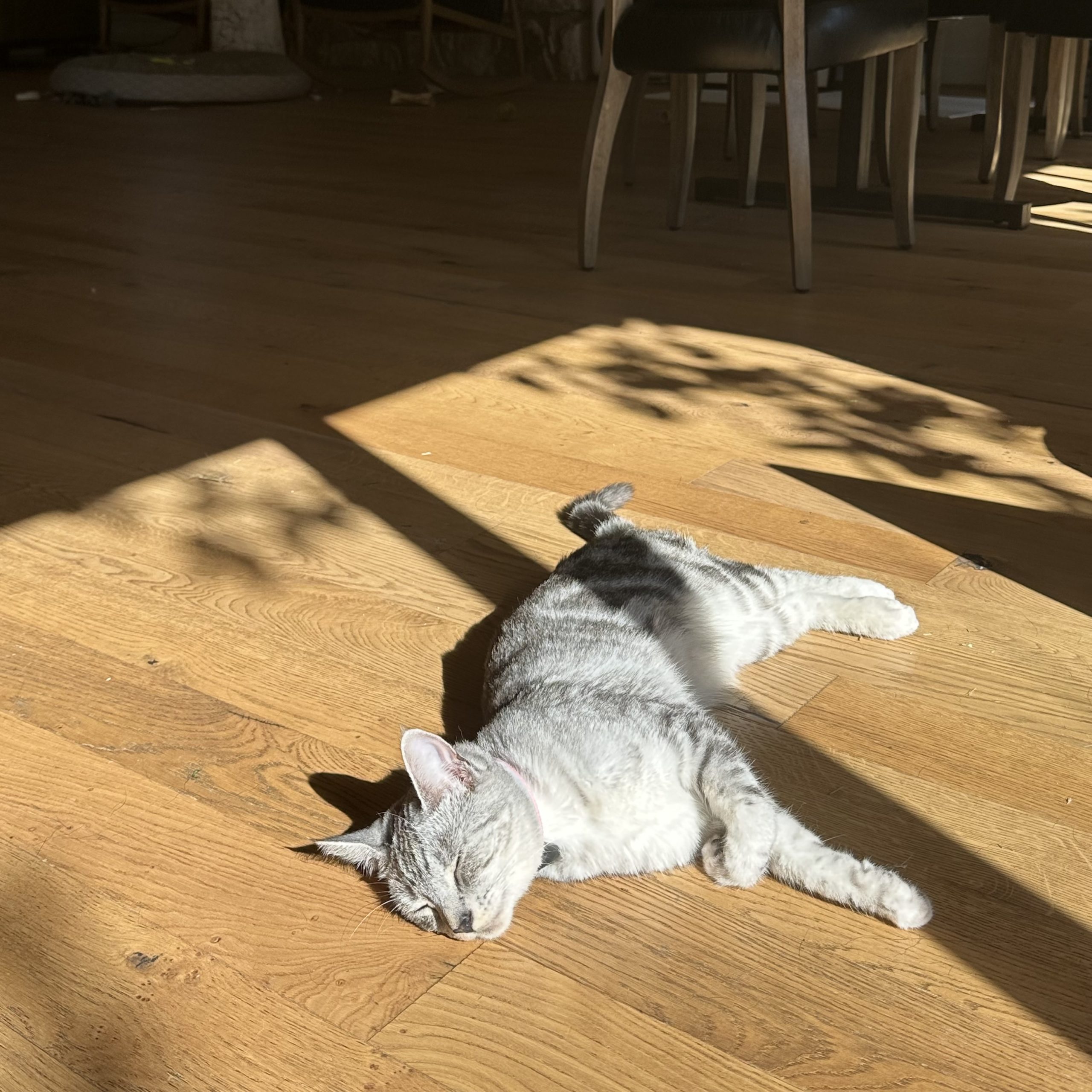
6. You are you, and nobody else.
Here’s the biggest advantage you have over your fellow applicants. It’s time to capitalize off your individuality and emphasize your uniqueness. This is not along the vein of “I’m so quirky and different”, but more so about how you being you will benefit your college.
And you don’t have to put down your competition, either. Being yourself is enough, as cheesy as it sounds – why waste words on why you’re better than everybody else? That’s not the team-player mentality that admissions offices are looking for, because college is not about competing (I’m obviously not referring to sports, clubs, or betting your bestie that you can eat more mini Doritos than her). Everybody in your class can get an A.
Also, you want to be specific about your you-ness. You’ve got distinctive qualities that come together to paint a vivid picture of your gorgeous ethic. So none of that “I am a very nice person :)”, and you don’t even want to jazz it up: “I have often been regarded as possessing a most amiable disposition.” You want to indirectly brag about how great you are via the age-old writing rule: “Don’t tell it to us, show it to us.”
That is not to say that you can’t be confident – remember how my own essay ended with “I know my future is full of greatness”? (By the way, I was fully convinced otherwise, but I faked it ’til I made it!) But I felt like the rest of my essay had set itself up to earn that line by showing my capabilities.
7. You don’t have to start from the very beginning.
As I mentioned in the analysis of my own essay, the overwhelming majority of applicants will structure their college essay in chronological order. Now, this isn’t a dealbreaker; maybe when you were born, you had 10 legs, and that’s why you wanna study squids, or something. I don’t know. But seriously, if you want to be different, throw your audience right into the excitement!
Remember our friend who Googled his father’s name and Wikileaks came up? That’s the good stuff, and it came from a memory in 8th grade. If you’re trying to meet the word count by describing the plants that grew on your childhood lawn (unless, of course, you’re a botany major), the admissions office will smell that kind of filler from a mile away.
What’s the most impactful thing that’s ever happened to you? How did it shape the person you are today, and how did it affect your decision to go to college? Don’t reach for it – there should be a clear line between that event and your college career. So if one memory doesn’t work, try something else. Then after that, you can go back – or jump forward – to another relevant period of your life. Play around with time in your essay. Passion is nonlinear, so why should your essay be?
8. Keep your audience invested in the idea of your success.
By highlighting your uniqueness, you’re now well on your way to convincing your audience to care about you. You need your reader to be invested in you and your success, and thereby, you must keep them interested.
College campuses are made up of open-minded individuals who have worked hard to get there. Prove that you can fit in to a community like that by explaining why you deserve to succeed, and how that success can only be achieved through college.
9. It’s okay if you don’t have everything figured out.
Breathe! If you’ve got no idea what you’re doing or where you’re going, and all you know is that you want to go to college, you’re not alone. It’s a big ask to have anyone decide which direction to take their future in, let alone a high schooler (or even a grad student… heyyyyy).
Being undecided can be a strength, because it means you’re open and flexible. College is about evolving minds and preparing people for a bright future, and it may take you a while longer to discover what you’re interested in. One common denominator of all successful applicants is that they’re hard working.
Show the admissions office that whatever direction you’ll be going in, you’ll work hard at it. The best way to do that? ↓↓↓↓↓
10. Be committed and responsible.
Clearly, the common denominator of all of these strategies is that regardless of who you are and what you want to study, you want to write about your commitment.
Whether it’s taking care of your siblings, volunteering at a local animal shelter, or working at the mall to pay for your car, your life is your responsibility.
Let’s be honest, nothing screams “college-ready” than being a little all over the place, but you made it this far, and that’s more than a lot of people can say. (I mean, you read a whole blog alternating between scarily-philosophical advice, cat photos, and bird-related tangents, and that’s something to be proud of in itself.)
In Texas, 1 of every 5 students fail to graduate, so in the words of my guru Kris Jenner:
When you’re writing your essay, it’s crucial to show that you take your commitments seriously and that you can be trusted to handle the challenges that come with higher education. After all, college isn’t just about hitting the books—it’s about managing your time, your tasks, and occasionally, the tendency to binge-watch 4 seasons of Ted Lasso.
The point is, you are more than just bullet points on a resume—you are a story, and a story is made up of characters. (I am not about to say that this essay is your main character moment, although it’s on the tip of my tongue). Your true self is enough to get you into college. Now you’ve just got to sell it.
Here you’ve got a few key strategies to keep in mind for your application. Your future college self will thank you for it—probably while juggling three Hydro Flasks of coffee, your laptop, and an overflowing laundry basket.
I say this at the end of part 2, but just remember, the only tip you need for your college essay is to believe in yourself. That goes for life, too!
¹”Birds” will be Mrs. Kisses’s major – of course, she decided to attend higher ed after finding a scholarship on Red Kite! Right now, she’s only two years old.


